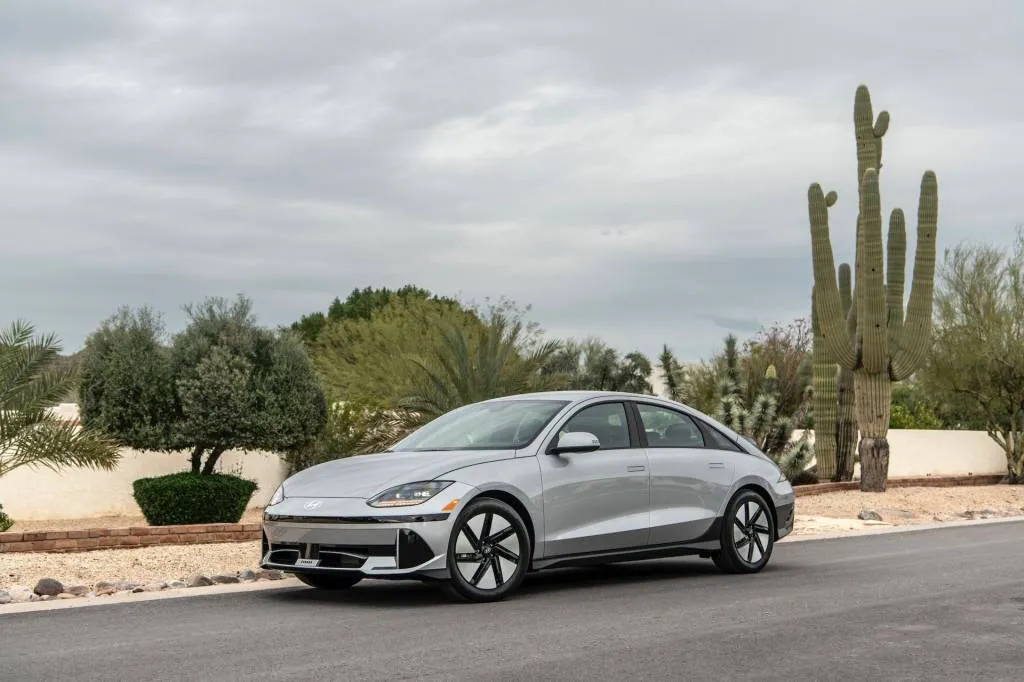- 145,235 Hyundai and Genesis EVs have been recalled
- The recall stems from a possible challenge with the onboard charger
- The problem ends in a possible loss in drive energy
Hyundai is recalling 145,235 electrical autos from its foremost model and Genesis luxurious model due to a possible challenge with onboard chargers that would trigger autos to enter a fail-safe driving mode with lowered energy.
The recall consists of 2022-2024 Hyundai Ioniq 5, 2023-2025 Hyundai Ioniq 6, and 2023-2025 Genesis GV60 fashions. These three are based mostly on the identical E-GMP devoted EV platform. Different autos within the recall inhabitants, together with 2023-2025 Genesis Electrified GV70 SUVs and 2023-2024 Genesis Electrified G80 sedans, are electrical variants of internal-combustion fashions.
Built-in charging management items within the affected autos might develop into broken by sure electrical hundreds, stopping them from charging the autos’ 12-volt batteries, in response to the Nationwide Freeway Visitors Security Administration (NHTSA). This triggers the fail-safe mode, which initially permits full energy however step by step decreases obtainable energy over time.
2024 Genesis GV60
Drivers will see warnings on the dashboard and listen to audible chimes if this fault happens, the NHTSA mentioned, including that different car capabilities corresponding to steering and brake help, in addition to airbags, will stay purposeful.
The treatment entails updating the charging management unit’s software program, in addition to inspection of the unit and its fuse, with substitute as wanted. All of this will likely be completed freed from cost by Hyundai and Genesis sellers.
Hyundai plans to mail proprietor notification letters Jan. 17, 2025. House owners may also contact Hyundai customer support at 1-855-371-9460 or Genesis customer support at 1-844-340-9741. Reference numbers are 272 for Hyundai and 025G for Genesis. Among the recalled autos are concerned in a earlier recall, however might want to have the brand new recall work accomplished as nicely, in response to the NHTSA.

2024 Hyundai Ioniq 6
Automakers have been very sluggish to do away with 12-volt electrical programs in new autos. One of many few autos to have made the change to this point is the Tesla Cybertruck, which makes use of 48-volt {hardware} that Tesla is now buying round to different automakers.
Omission of 48-volt electronics is especially shocking in Hyundai’s E-GMP autos, which incorporate numerous different developments like 800-volt charging. Hyundai has even launched an answer that does away with the old-style lead-acid 12-volt battery in a few of its hybrids—however not any of its EVs to this point.

